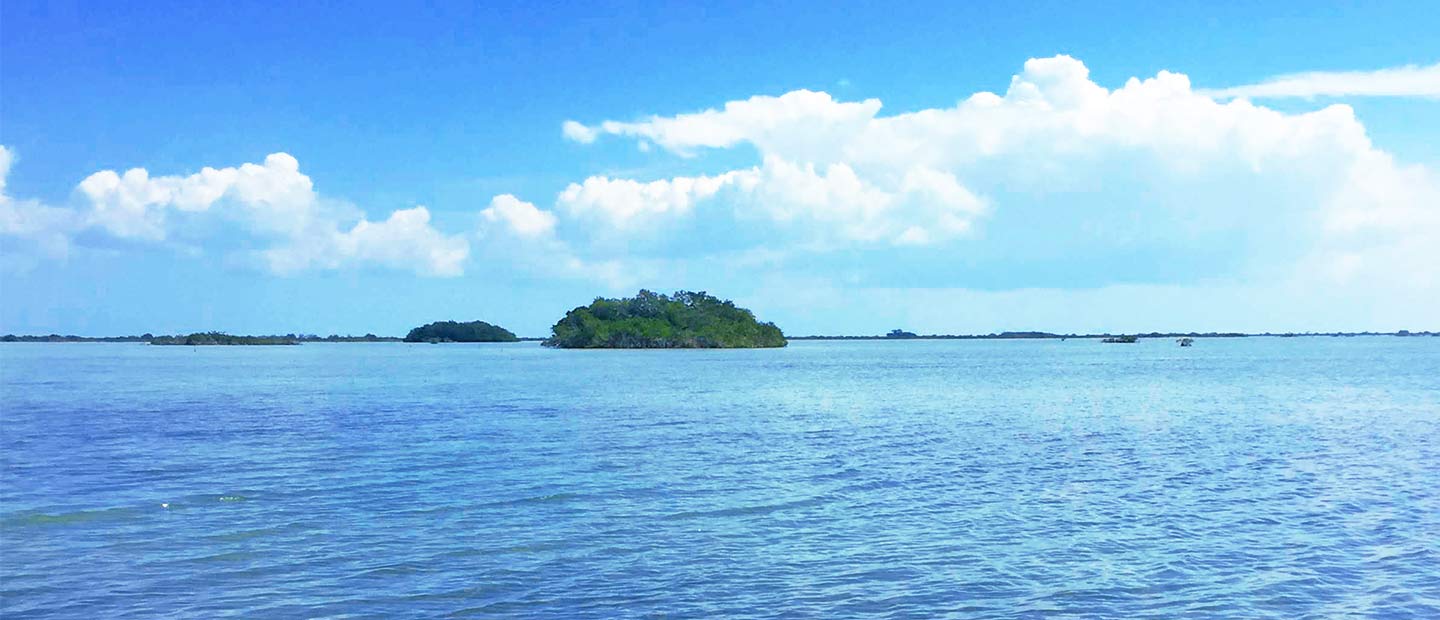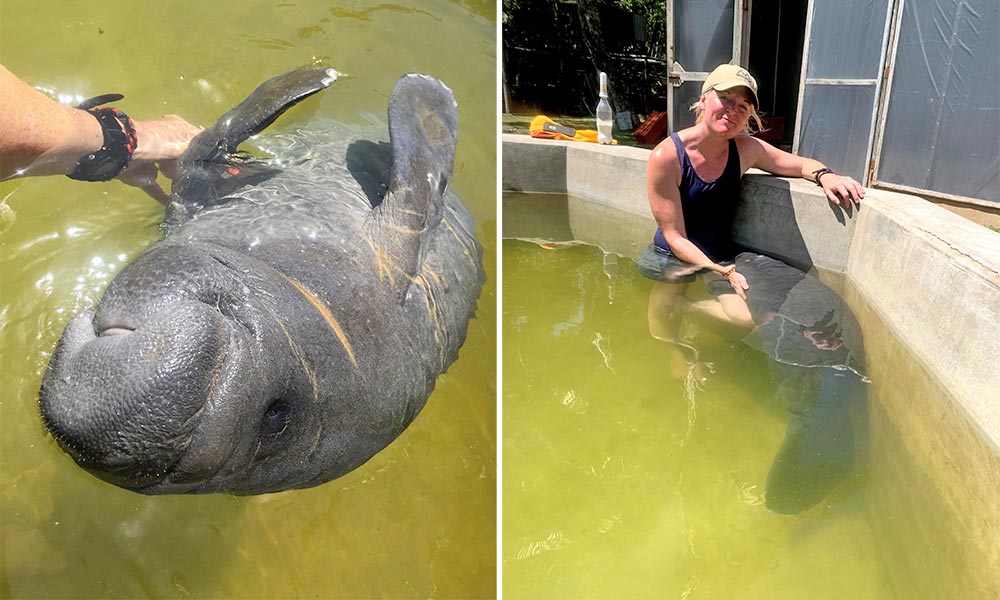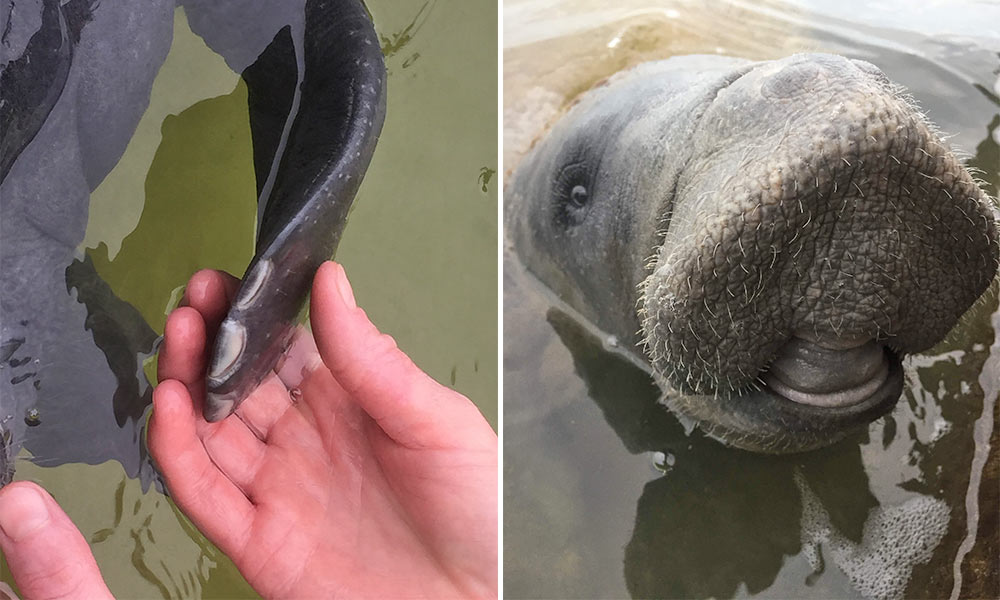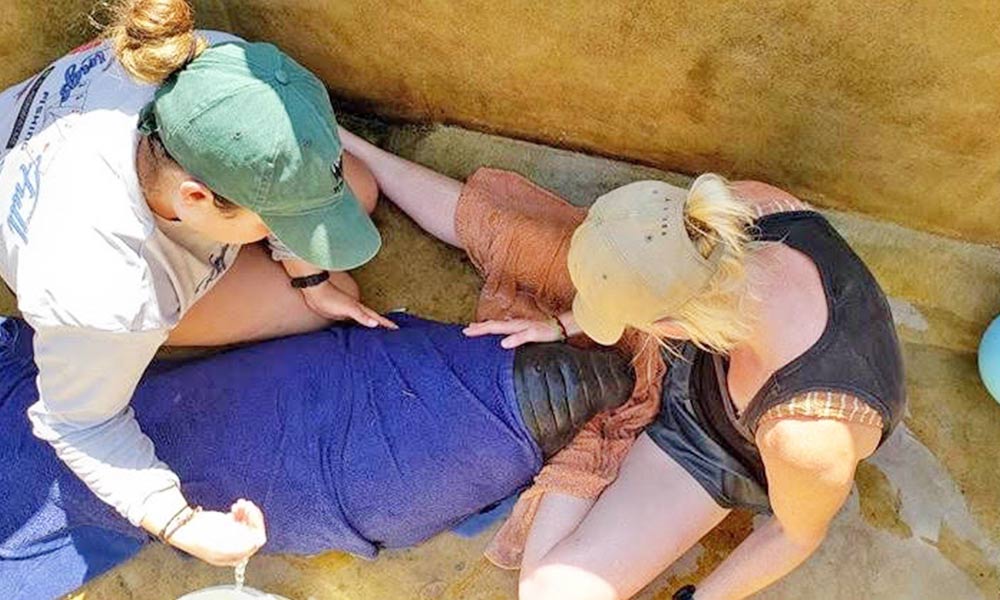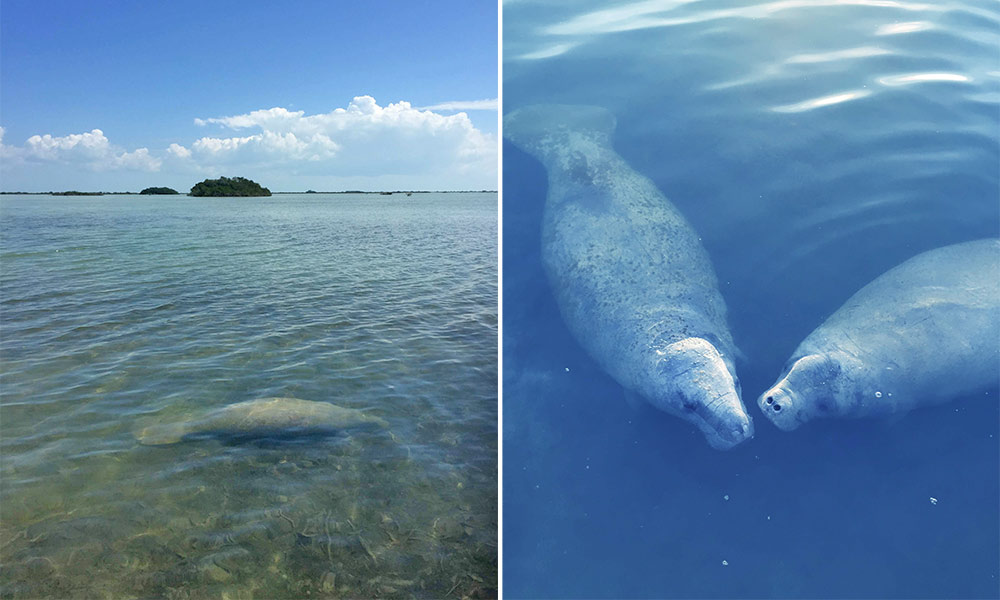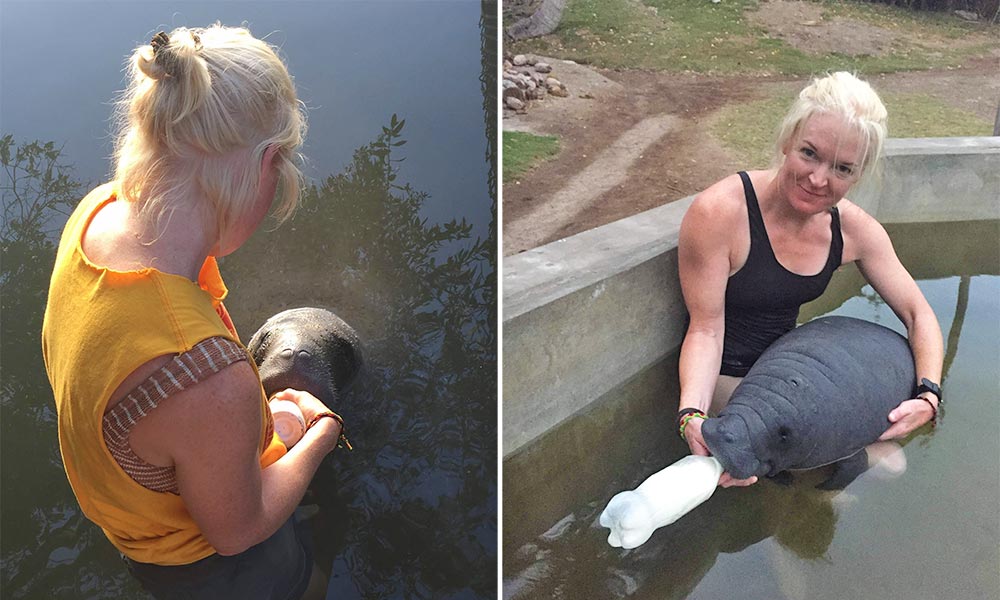This is why organisations like Wildtracks are so important for endangered species like the Antillean manatee, and the work it does is critical for the survival of these gentle sea cows. The rehabilitative stage of a rescued manatee requires the utmost effort from volunteers – and can often take several years – in order for animals to be physically, behaviourally and psychologically prepared and capable for life back in the wild. To help manatees transition as effortlessly and naturally as possible, the Wildtracks site makes use of the lagoon that it sits upon. In a cordoned-off area within the lagoon, manatees can begin to learn about changes in both the salinity and temperature of the water and how they can seek shelter underneath overhanging mangroves. The lagoon itself is the perfect location for their soft release site. This involves raising animals in an environment that is similar to where they will be released so they can become accustomed to their surroundings and acquire skills needed for survival in the wild. At this stage, they can come and go freely and are weaned from human contact, are able to graze freely on seagrass and mangroves, and can integrate with the wild manatee population. From here, their movements are tracked through satellite trackers.
All of this work requires a great deal of resources and labour, and just like our work at Auckland Zoo, relies heavily on the willingness and support of volunteers. Joining Wildtracks for a month is no easy feat. Helen describes long days and many hours spent dedicated to making sure all patients within the centre are adjusting and adapting well. However, it’s this time spent with manatee patients that Helen found the most rewarding, and one highlight she’ll treasure for a lifetime.
”This year I helped nurse a five-month-old calf. It is heart-breaking to see orphaned calves but it was a privilege to be one of her careers. During the time I was there this involved pool sessions, which provided her with physical contact and stimulation, as well as many bottle feeds, which would start at 6 am and finish at 1.30 am.”
We’re so proud of our staff who never fail to show their dedication and passion for wildlife – even when the project at hand is located more than 10,000 kilometres away –to help some of the world’s most incredible species.
Through the Auckland Zoo Conservation Fund, our passionate staff and conservation partners lend their expertise to projects both locally and globally to protect wildlife and wild places. Because of your Zoo visits and donations, we’ve been able to contribute more than $4 million to a diverse and deserving number of wildlife conservation projects – and that number keeps growing, thanks to you!


